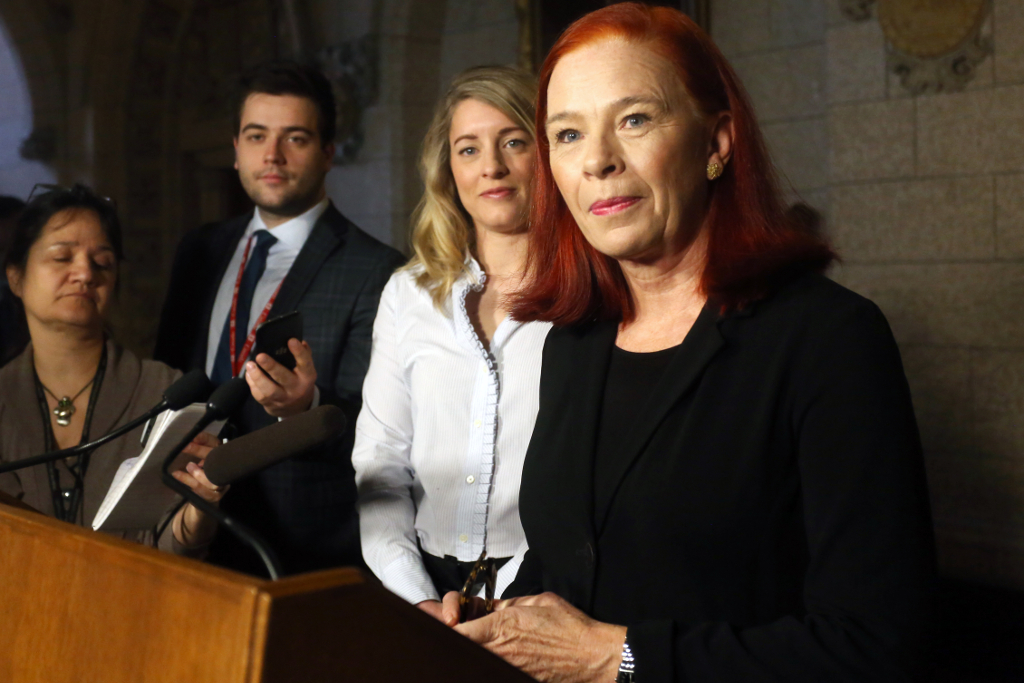 OTTAWA — Catherine Tait’s appointment as head of CBC/Radio-Canada is signalling a shift at the public broadcaster, as she becomes the first woman to lead the CBC and the first to bring extensive content production experience to the role, according to experts.
“I...
OTTAWA — Catherine Tait’s appointment as head of CBC/Radio-Canada is signalling a shift at the public broadcaster, as she becomes the first woman to lead the CBC and the first to bring extensive content production experience to the role, according to experts.
“I...
Following last fall’s election, the government is set to boost CBC/Radio-Canada's funding, but when that will happen and under what conditions is unclear. It also remains to be seen whether the public broadcaster will continue the long-term plan it began under the former Conservative government. The new Liberal government plans to hold a consultation prior to making additional funding available, though it’s not disclosing when it will happen, how comprehensive that consultation will be or how it might affect CBC’s current plans. CBC spokeswoman Alexandra Fortier said in...
Sports fans are an ideal market to sell 4K content to in its early stages, say analysts, though at least one expert says this quality of video has not yet achieved "must-have" status. Richard Grunberg, associate...
Quebecor Inc.’s Videotron announced Tuesday it will be releasing an ultra-high-definition (UHD) set-top-box for its customers, making it the first Canadian telecom provider to commercially release such technology. Videotron...
Having five Canadian teams reach the NHL playoffs for the first time in more than a decade is set to translate into a winning season for Rogers Communications Inc. as it completes the first...
MONTREAL — NDP Leader Tom Mulcair is promising, if elected, to reverse funding cuts imposed on CBC/Radio-Canada in recent years, though political observers do not expect the Conservative...
It seems all eyes are on the two newest services in the Canadian TV industry. This fall, the country’s biggest telecom and media companies launched streaming services meant to compete with Netflix Inc.’s, and how they end up performing in the coming weeks and months is “the thing that everyone’s watching,” said broadcasting consultant Peter Miller. The industry will be looking at how Rogers Communications Inc. and Shaw Communications Inc.’s Shomi and BCE Inc.’s CraveTV develop, and “whether they do what proponents of those...
CBC/Radio-Canada says it will either break even or earn a profit on its acquisition of the broadcasting rights for the 2018 Olympics in South Korea and the 2020 Olympics in Japan. During a conference...
While the announcement that Rogers Communications Inc. and Netflix Inc. are working together on an original TV series marked an unprecedented collaboration between the two rivals, it’s a logical...
In a little more than a week, the people who make and produce, broadcast and distribute, analyze and report on the Canadian television industry will gather in Gatineau, Que., to spend two weeks talking about its future. The...
Rogers Communications Inc. and Shaw Communications Inc. officials say they’re confident the launch of their Shomi over-the-top video service will not eat into their cable business, though industry experts are less convinced. The companies on Tuesday announced they would launch a streaming service containing TV shows...
CBC/Radio-Canada’s re-focusing of its priorities on its digital and mobile presence is “not a very logical thing to do,” said Barry Kiefl, president of Canadian Media Research Inc....
If the CRTC ends the practice of simultaneous substitution, as it has suggested it could as part of its review of television, conventional broadcasters would be in for a “huge financial...
As CBC/Radio-Canada on Thursday announced another round of job cuts and other reductions throughout its organization, observers expressed impatience over the lack of a fundamentally different vision emerging from the public...
George Burger wants to give Canadians a more streamlined television experience, yet analysts say the high-tech Internet-protocol TV offerings from his VMedia Inc. might have limited appeal. The IPTV service from VMedia now...
The CRTC is asking Canadians for feedback about Canadian content in online television services and their adherence to programming standards in an online questionnaire released Tuesday as part of Phase 2 of its review of television services in Canada. In a section about online programming, the CRTC asks respondents whether they would be willing to pay extra to have more Canadian programming available within online services, and in order to have online services provide closed-captioning and adhere to programming standards. The questions imply the regulator is reconsidering its previous stance...